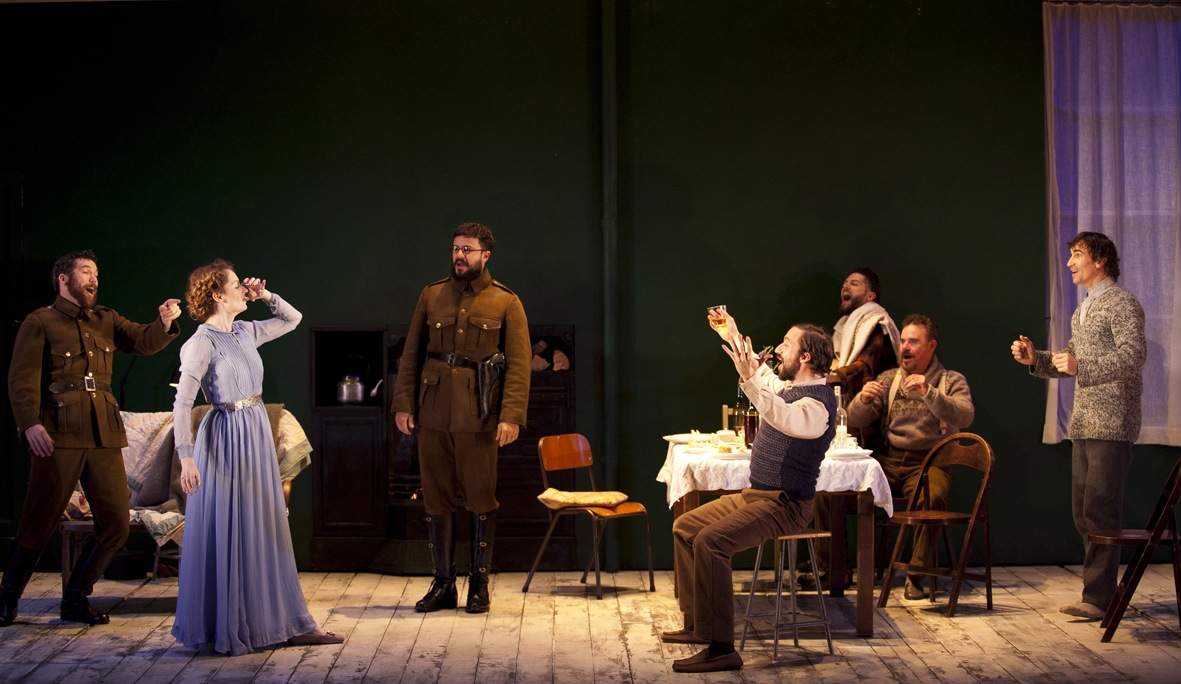The White Guard
One imagines Stalin licking his lips in delight at the sad fate awaiting these loving, erring, human characters.
Overview
Joseph Stalin liked The White Guard. Which is odd, because it's a sympathetic portrayal of his enemy, the counterrevolutionary coalition of tsarists, nationalists and other conservatives who tried and failed to oust the Bolsheviks after the October Revolution. One imagines Stalin licking his lips in delight at the sad fate awaiting these loving, erring, human characters. He gave its writer, Mikhael Bulgakov (of whose oeuvre you're most likely to have encountered the surreal satirical novel The Master and Margarita), a post at the Moscow Arts Theatre, where he was allowed not-quite-free reign.
The White Guard is a work of microhistory, examining a big public moment through the lens of small, private lives. The Turbin family are bourgeois intelligentsia in Ukraine's capital of Kiev, and each of its members and hangers-on embodies a particular political attitude, from loyalist to pragmatist to dorky, insulated poet. They all gravitate to the play's sole woman, Lena (Miranda Otto), who just wants everyone to live.
Much like in Chekov's Uncle Vanya, the last Andrew Upton adaptation on this stage, these Eastern Europeans parley within a broadly Australian vernacular and are at their most wonderful when they get drunk and start flirting. The adaptation is good, containing poetry (young soldiers are "children who hold their rifles like spades and think 'we are going to the seaside'"), casual absurdity ("ahh, the Ukraine") and brilliantly translated satire ("This coat is neutral. Neither Bolshevik nor Menshevik, just essence of prole"). The tone shift into military farce in the second act is unexpected and enlivening, although it does somewhat jar with and diminish the subtle gravity of the Turbins' home life at the play's centre.
This is an accessible adaptation with classical production (including a graceful domestic set by Alice Babidge that unfurls like a sail) and richly hued performances (from the likes of Jonathan Biggins, Darren Gilshenan and members of the Residents). At the same time, The White Guard's nearly three hours feel like 13, its emotional resonance comes infrequently, its intellectual value is fuzzy, and it seems like nothing happens (yes, even with a revolution going on). But the reviews out of England for the recent National Theatre take on this adaptation were positive, so perhaps that's the generation gap speaking. The White Guard's place in the STC season seems to be to satisfy a traditionalist theatre crowd who don't want to raise umbrellas as shelter from stage rain and body parts.





